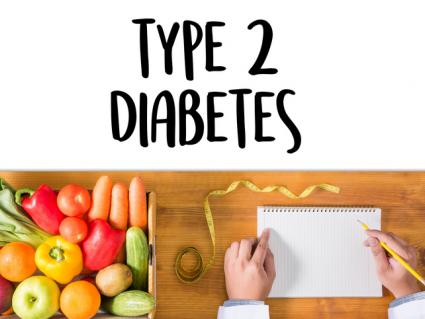Type 2 Diabetes: Taking a Holistic Approach

Research shows a holistic approach to Type 2 Diabetes is beneficial.
According to the latest numbers from the CDC1, the overall obesity prevalence in the US is 36% amongst adults and 17% in youth. If you include those who are overweight, for adults the prevalence is 70.7%. These numbers are quite staggering since obesity related conditions include heart disease, stroke, certain types of cancers and type 2 diabetes.
November is diabetes awareness month and the good news is that undiagnosed diabetes in the US has declined2. Awareness is the first step to initiating treatment. However, proper diabetes education may be lacking and in my experience, I find that it is a very important component of the treatment plan. It is difficult to make good choices without a basic understanding of the effects of food on one’s metabolism.
Type 2 diabetes is also known as insulin resistant diabetes (an older term sometimes used is adult onset), but it should be considered a carbohydrate/sugar intolerance. It is a condition in which the body becomes ineffective at utilizing sugar as an energy source. In fact, eating carbohydrates causes a cascade of metabolic effects that include the STORAGE of fat, AND the inability to BURN fat as an energy source. The result is an increase in body fat, which leads to an increased ineffectiveness of burning fat. The increase in fat is what contributes to insulin resistance. Insulin becomes ineffective at lowering blood sugar, but it still works very well at storing and locking down fat!
Ironically, this does not happen when eating fat in the absence of carbohydrates. In fact the opposite occurs. Unlike carbohydrates, fat does not stimulate insulin, therefore dietary fat will likely not be stored, and body fat can be burned. This is the main principle of the ketogenic diet. It is a high fat, moderate protein, low carbohydrate structured diet.
Recently an article in Holistic Primary Care featured a study that investigated the ketogenic diet for those who were overweight or obese with type 2 diabetes. The investigators reported 71% clinically significant weight loss, a 1% drop in HgA1C (average blood sugar), and a decrease in the need for medications including insulin, on a formulated low carbohydrate ketogenic plan.
Dietary plans are very individual and what works for some may not work or be realistic for others. At the Stram Center for Integrative Medicine, our practitioners, personal trainer, and nutritionist, can assist in choosing the ideal plan for you, and will work with you to obtain your goals.
REFERENCE LINKS:
https://www.cdc.gov/obesity/data/adult.html, https://www.medscape.com/viewarticle/887634





















